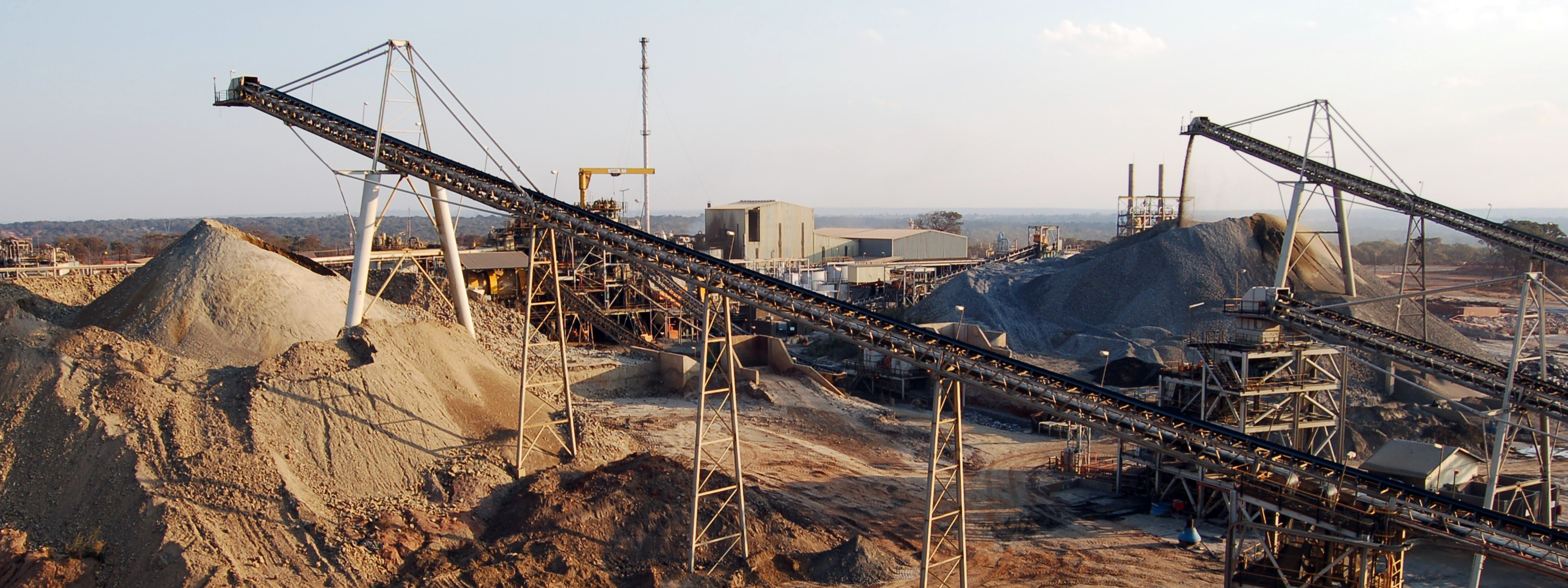
On 20 May 2025, the Minister of Mineral and Petroleum Resources published the “Draft Mineral Resources Development Amendment Bill” (the “Bill”). The Minister has invited interested parties to make written submissions on the Bill by 13 August 2025. On 9 June 2025, the “Correction of Draft Mineral Resources Development Bill, 2025” was published (the “Correction”).
The Bill seeks to amend the Mineral and Petroleum Resources Development Act 28 of 2002 (the Mining Act). However, during March 2012, the African National Congress, the majority party in the current Government of National Unity in South Africa, published a policy discussion document titled “Maximising the Developmental Impact of the People’s Mineral Assets: State Intervention in the Mineral Sector (SIMS)”. The South African government published the Draft Mineral and Petroleum Resources Development Amendment Bill, 2012, shortly thereafter, on 27 December 2012 (the 2012 Amendment Bill). The interventionist intentions of the 2012 Amendment Bill were apparent from the attempts to impose beneficiation obligations, to restrict the export of critical minerals, and to impose stricter controls on the transfer of ownership and control over mineral resources. The 2012 Amendment Bill was met with fierce opposition by the mining industry, and the then president of South Africa rejected it based on constitutional objections. The Bill now seeks to revive the South African government’s previous attempts to secure greater control over the development of the country’s mineral resources.
According to the preamble of the Bill, it is intended to provide, amongst others, for matters relating to small-scale and artisanal mining, to regulate associated minerals, to enhance provisions relating to the beneficiation of minerals and mineral products; to provide for enhanced consultation with stakeholders affected by mining; to align the Act with domestic legislation and to provide for enhanced sanctions. The Bill will serve the important clerical function of repealing all petroleum-related provisions. These petroleum-related provisions will in future be regulated by the Upstream Petroleum Resources Development Act 23 of 2024, also recently promulgated on 25 October 2024, but which is yet to be brought into effect. Although most of the provisions included in the Bill are devoted to this alignment exercise, many substantive amendments are also proposed. We wish to highlight the following proposals in this alert:
- Control over beneficiation and the export of critical minerals
- Control over the transfer of ownership of mineral resources
Control over beneficiation and critical minerals
The Mining Act currently empowers the Minister responsible for mining (“Minister”) to promote the beneficiation of minerals in the Republic. In doing so, the Minister may “prescribe the levels for beneficiation” and must receive written notice and must be consulted with by any person who intends to beneficiate any mineral mined in South Africa abroad. To date, no regulations have been published to regulate the implementation of the Minister’s power.
The Bill now proposes to amend the definition of “beneficiation” to read as “the transformation or value addition of a mineral or mineral product, or a combination of minerals, to a higher-value product over baselines to be determined by the Minister, which can either be consumed locally or exported”. This definition is nearly identical to the one proposed in the 2012 Amendment Bill. The Bill also proposes the insertion of a definition for “security of supply” and for this term to mean “the orderly supply of designated minerals or mineral products for local beneficiation in order to support and sustain national development imperatives”. The concepts of “mineral products” and “designated minerals” are not currently defined in the Mining Act, and no definitions are proposed in the Bill. The 2012 Amendment Bill proposed to define “designated minerals” as “such minerals as the Minister may designate for beneficiation purposes as and when the need arises in the Gazette”. To make sense of these amendments, it is necessary to consider the “Critical Minerals and Metals Strategy” (the CM&M Strategy) recently approved by the Cabinet. In addition to coal, the Department of Mineral and Petroleum Resources places the highest priority on platinum, manganese, iron ore and chrome ore. Minerals fitting the conventional definition of “critical” —those supplying the electric mobility and renewable energy industries such as lithium, copper and graphite—are described as having “moderate criticality” in the South African context. The Electricity & Energy Minister said the government had resolved to declare uranium a critical mineral in its efforts to resume SA’s leading role in the nuclear industry. In the CM&M Strategy, however, uranium has only been designated a ‘moderately critical’ mineral. The CM&M Strategy states that a “balanced export strategy” is necessary: one in which the export of some targeted raw materials may be permitted to address immediate market demands, but where retention of select critical raw materials for local beneficiation remains paramount.
It is in this context that the Bill also seeks to amend section 26 of the Act, which regulates beneficiation. According to the Bill, the Minister “must” promote beneficiation in order to regulate the mining industry to meet national development imperatives and to bring optimal benefit for the Republic. These aims are said to advance the following objectives: namely to “ensure transformation” (this concept relates to one of the fundamental tenets of the Mining Act, which is to transfer wealth to Black South Africans in accordance with the state’s Black Economic Empowerment policies); to ensure sustainability of supply of minerals in the national interest; and to develop local beneficiation capacity. The Bill also seeks to introduce the following obligation as section 26(2B): “Every producer of minerals must make available minerals or mineral products for local beneficiation”. Another provision proposed will oblige the Minister to impose beneficiation-related conditions in the granting of mining rights. This was previously a discretionary power. In summary, the proposed amendments aim to vest the Minister with broad discretionary powers to restrict the export of minerals. It also includes a blanket export prohibition on mining companies. Whilst it is clear that the practical implementation of these provisions requires much more specificity in the form of regulations, it is unlikely that the mining industry will find such a broad power in such vague terms (for example, there are no indications on what the suggested baselines will be, the mine gate price, the volumes, the conditions, etc.), acceptable; particularly where the proposed amendments also seek to prohibit the owner of severed minerals to deal with its property as it pleases, including to export.
Control over the transfer of ownership of mineral resources
The Mining Act currently prohibits the transfer of mineral rights granted under the Mining Act from its current holder to another without the consent of the Minister. The Minister must also consent to the proposed transfer of the direct or indirect control of the corporate holder of such a mineral right. However, the change of the controlling interest in a listed company is exempt from the ministerial consent requirements. The Bill proposes a drastic change to this qualified prohibition.
According to the Bill, as originally published, the Minister’s prior written consent will be required for the transfer of “any interest in an unlisted company or any controlling interest in a listed company”. The recent Correction, however, appears already to be a response to criticism from the industry since the publication of the Bill, warning of the potential for extra-territorial overreach and that the proposed amendments would dampen deal-making activity and scare away foreign investment while SA is struggling to boost exploration and capital spending. The Correction has now deleted the proposal to require ministerial consent for the transfer of a controlling interest in listed companies, thus maintaining the legal position as it currently stands. The Bill wants to introduce the following hitherto omitted sanction: “any cession, transfer, letting, subletting, assignment, alienation or disposal of a prospecting or mining right or an interest in a corporation or company made in contravention of subsection 1, is void”. The Bill proposes a new definition of “controlling interest” to make it clear that indirect control is also included. These proposals are not dissimilar to the wording of the amendments proposed in the 2012 Amendment Bill and, at that time, rejected by the mining industry as a draconian interference in the marketplace. It is likely that the mining industry will again take issue with the impractical and unbusinesslike approach to the disposal of even one share in an unlisted company. It is also likely that the mining industry will still bemoan the potential impact of the amendments on foreign investment.
This is clearly an early stage in the context of this attempted amendment to the Mining Act. We anticipate strong opposition from the mining industry. We will provide updates as and when developments occur. At this point, we are cautiously optimistic that some of the proposed unfortunate elements for investment will not become binding law.
White & Case means the international legal practice comprising White & Case LLP, a New York State registered limited liability partnership, White & Case LLP, a limited liability partnership incorporated under English law and all other affiliated partnerships, companies and entities.
This article is prepared for the general information of interested persons. It is not, and does not attempt to be, comprehensive in nature. Due to the general nature of its content, it should not be regarded as legal advice.
© 2025 White & Case LLP



